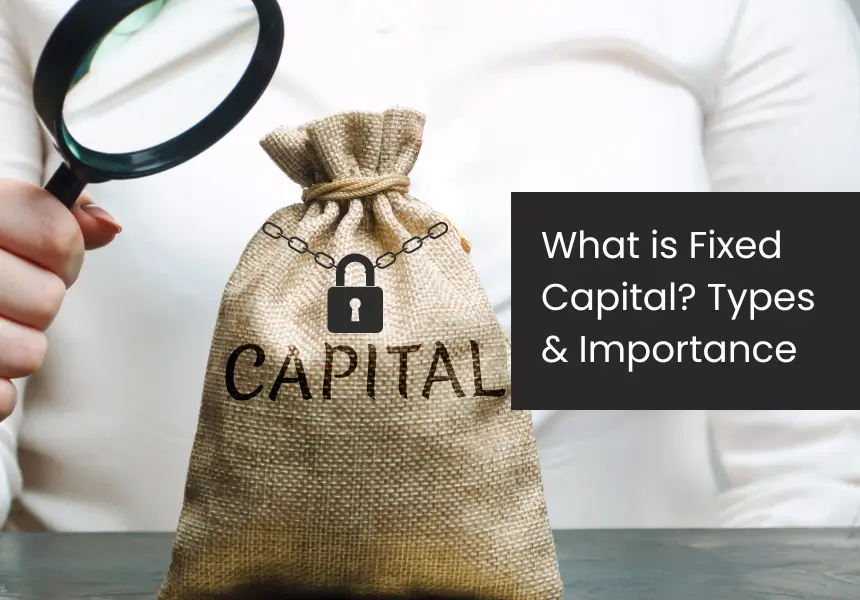When it comes to growing your business, whether it’s launching a new project, expanding your operations, or managing your daily expenses, getting the right financing is essential. One of the most common ways to do this is through a business loan. However, the actual cost of borrowing depends not only on the loan amount, but also on the associated interest rate.
Business loan interest rates can have a significant impact on your financial planning, determining how much you will repay over the life of the loan. A lower interest rate can help you save significantly, easing the financial burden on your business.
Here we’ll look at business loan interest rates, how they’re calculated, and how you can get lower rates.
The interest rate on a business loan refers to the percentage charged by a lender of the total loan amount. This rate is the cost of borrowing, where the borrower pays an additional amount on top of the principal amount of the loan.
The interest rate mainly depends on factors such as the type of loan, the amount borrowed, the repayment period and the purpose of the loan. This interest rate helps lenders offset the risk associated with lending funds to businesses.
| Details | Details |
| Loan amount | Min – 50,000, Max – 10 lakhs |
| Mandate | Min – 6 months, Max – 36 months |
| Age | Min-23, Max-58 (co-applicant required if age > 55) |
| Interest rate | 19.99% to 26% per year |
| Processing Fees | 2% to 2.99% + GST |
| Vintage Business | Min. 2 years |
| Office Score | >=700, NTC authorized (with loan amount capped) |
How to calculate interest on a business loan?
When applying for a business loan, it is important to consider the interest rate as it affects the total amount of interest paid over the tenure of the loan and the total EMI.
To calculate the amount of interest payable on business loans, you can use the following formula:

Or,
P – the principal amount of the loan
R – the monthly interest rate (annual interest rate divided by 12)
N – the duration of the loan in months
For example, let’s say you take a business loan of ₹1,00,000 at an interest rate of 12% per annum for 12 months. Here’s how to calculate EMI:

After solving the above equation, the EMI will be around ₹8,885 per month, with a total interest payment of ₹6,619. The total loan repayment would be around ₹1,06,619.
However, calculating interest manually can seem complex. To make this easier, you can use online EMI calculators provided by lenders, which will allow you to simply enter the loan amount, interest rate and tenure.
This will help you get accurate results and plan your finances effectively.
Factors Affecting Business Loan Interest Rates
Depending on lenders and borrowers, several factors can influence business loan interest rates. Understanding these factors can help businesses obtain loans at favorable rates. Below are some of the factors that impact business loan interest rates:
1. Nature of the activity
The industry in which your business operates helps determine the interest rate. Lenders generally classify loans based on whether the business falls into the priority or non-priority sectors.
Priority sectors, which contribute substantially to the economy but struggle to access finance, can often benefit from loans at lower interest rates. At the same time, businesses in non-priority sectors could face higher rates because they have easier access to credit.
2. Business longevity
Lenders consider the stability and sustainability of a business before determining interest rates. A company with a longer history demonstrates resilience and consistency, which can lead to lower interest rates. Lenders generally prefer businesses that have been in business for at least six months, as a more established business is considered less risky.
3. Turnover
Lenders evaluate a company’s profitability and cash flow before lending it funds. A company with consistent profitability and good turnover is more likely to benefit from a lower interest rate. Given the increased risk of default, companies with fluctuating or negative profits may be offered higher interest rates.
4. Credit Score
Credit score is one of the most important factors affecting loan interest rates. A credit score of 700 and above is generally preferred because it reduces the lender’s perceived risk of default. Businesses with higher credit scores are more likely to receive favorable interest rates, while lower scores can result in higher costs.
5. Amount and duration of the loan
The amount and term of the loan also influence interest rates. Larger loan amounts and longer repayment terms increase lender uncertainty, which can lead to higher interest rates.
6. Market conditions
Economic factors such as inflation, demand for credit and broader market trends affect interest rates. In times of economic stability and low inflation, interest rates may be lower. However, during economic downturns or periods of high inflation, lenders may increase interest rates to mitigate risks.
How to get business loans at low interest rates?
Here’s how to qualify for business loans at low interest rates:
1. Maintain a high credit score
Lenders generally prefer to lend funds to applicants with a credit score above 700, which indicates good creditworthiness. To improve your score, ensure timely payment of bills and EMIs and avoid defaults.
2. Opt for a shorter loan duration
A shorter repayment period reduces the lender’s risk, which can help borrowers obtain lower interest rates. This also helps to minimize the overall cost of borrowing.
3. Provide guarantees
Secured loans require you to pledge assets, such as real estate or equipment, and they often have lower interest rates due to lower risk for the lender.
4. Borrow from reputable financial institutions
Established, experienced and RBI registered lenders usually offer competitive interest rates and better terms, ensuring you have a reliable transaction.
5. Ensure a constant income
Lenders generally prefer applicants with a stable source of income and a clear financial plan that proves your business’s ability to repay the loan.
6. Avoid payment defaults
A consistent repayment history builds trust with lenders and can help secure loans at favorable interest rates in the future.
Conclusion
Securing a business loan at a competitive interest rate helps maintain healthy cash flow and reduces the overall cost of borrowing. Business owners can effectively lower their interest rates by maintaining a high credit score, opting for shorter terms, and providing collateral. Additionally, choosing the right lender plays an important role in securing favorable terms.
LoanTap, an RBI registered NBFC, offers flexible business loans tailored to your unique needs. With competitive interest rates, simple application processes, and customizable repayment options, LoanTap ensures you can focus on growing your business by leaving excessive borrowing costs behind. Business loans from LoanTap provide a reliable solution for your financial needs.
Frequently Asked Questions
What is the difference between a fixed interest rate and a variable rate?
A fixed interest rate remains the same throughout the life of the loan, providing predictability. However, a variable interest rate can fluctuate based on market conditions, which could increase or decrease your cost of borrowing over time.
Can I negotiate the interest rate on a business loan?
Yes, it is possible to negotiate the interest rate with the lender, especially if you have a high credit score, strong business finances or provide collateral.
What is the difference between APR and interest rate?
The APR includes both the interest rate and other associated fees such as processing fees, providing a more complete view of the total cost of borrowing. The interest rate refers only to the cost of borrowing money.
Does the purpose of a business loan affect the interest rate?
Yes, the purpose of the loan, such as purchasing equipment, working capital or expansion, can influence the interest rate. Loans intended for specific purposes, such as equipment loans, may have specialized and lower interest rates.
What are the interest rates for small business loans in India?
Business loan interest rates in India typically start at 12%, depending on the lender, loan type and borrower creditworthiness.
Related blogs

What is fixed capital? – Types and importance
05/10/2024
![]()

Commercial Paper: Meaning, Types and Benefits
09/25/2024
![]()

What are non-convertible debentures (NCDs)?
09/23/2024
![]()